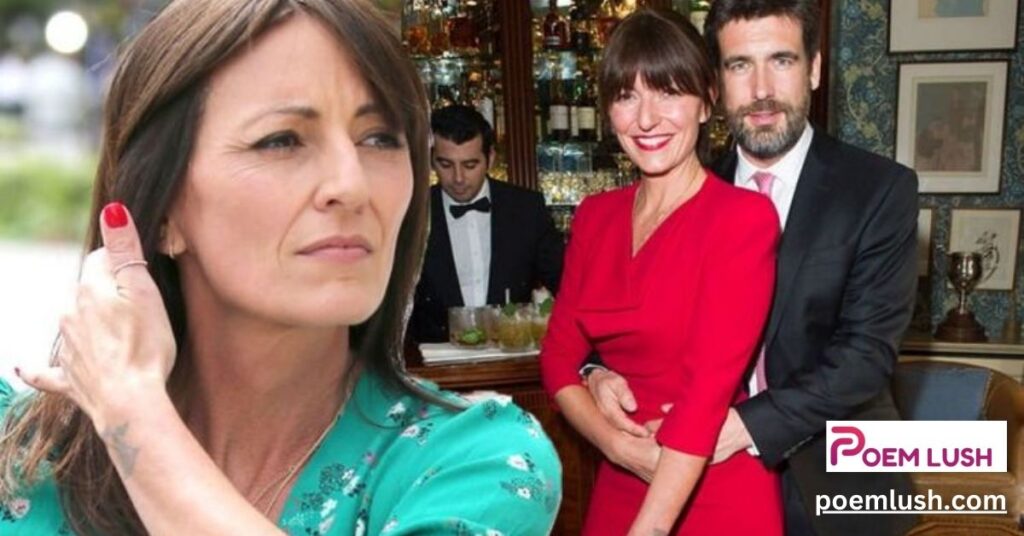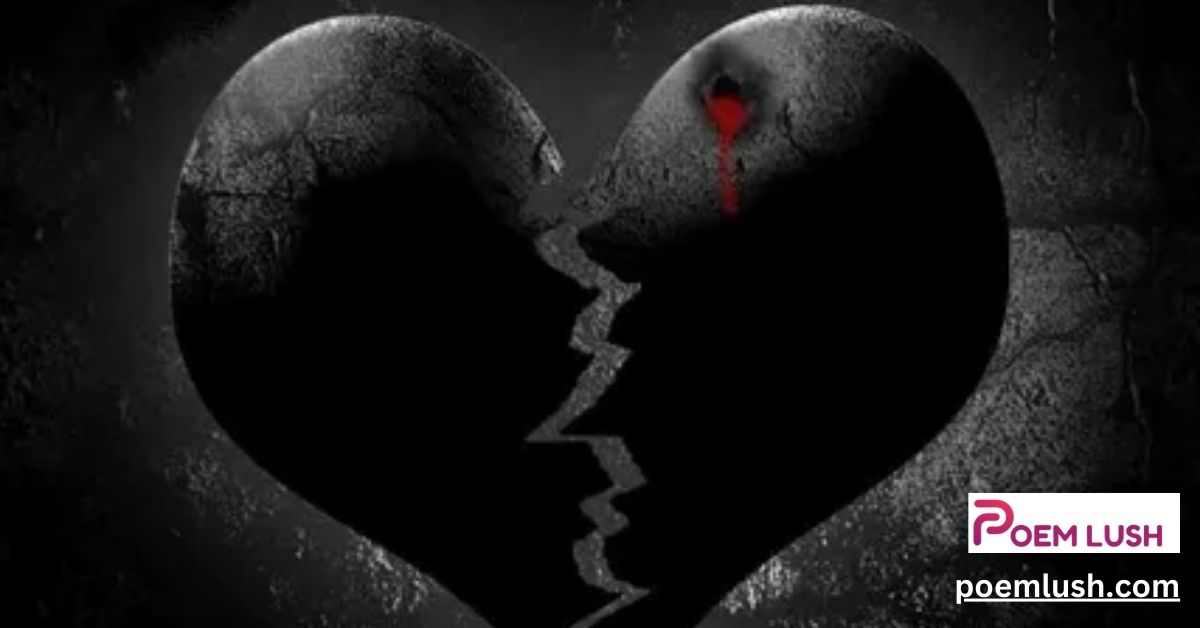Heartbreak is an experience that transcends culture, language, and age. It’s deeply personal yet profoundly universal. When words fail to convey the depth of sorrow, short poems about broken hearts become a medium of solace, reflection, and healing.
Poetry is a timeless art form that distills the essence of emotions into a few powerful lines. In this article, we’ll explore the significance of such poems, their impact, and how they serve as tools for emotional healing.
Why Short Poems Speak to Broken Hearts

Heartbreak is an experience that almost everyone can relate to at some point in life. Whether it’s the end of a relationship, the loss of a loved one, or unrequited love, the emotional pain that comes with broken hearts is powerful. While everyone experiences it differently, we often find solace in the words of others who have felt the same pain. This is where short poems come in—they convey the deepest emotions in just a few lines.
Short poems are uniquely powerful. Their brevity forces poets to focus on the raw essence of their message, making each word carry significant emotional weight. For those experiencing heartbreak, this economy of words mirrors the sharp and piercing pain of loss. Unlike lengthy prose or detailed narratives, short poems create immediate connections. Their compact form allows readers to revisit them, again and again, deriving new meanings or comfort with each reading. The conciseness also makes them easy to memorize, turning them into personal mantras of resilience.
Take this example:
Poem 1:
“You left a void, a silent room;
Yet in that space, I learned to bloom.”
With only a few lines, this poem encapsulates both the loss and the eventual growth that heartbreak brings. Short poems also give readers a safe space to interpret their meanings, and a single poem can feel deeply personal, speaking directly to an individual’s unique experience of heartbreak. This open-ended nature makes short poems incredibly relatable and therapeutic.
Short poems serve a powerful purpose during times of heartbreak, allowing the reader to feel understood, comforted, and empowered, and ultimately providing a reminder that even the deepest wounds can lead to personal growth.
The Power of Poetic Expression
Heartbreak disrupts the rhythm of life, leaving us adrift in emotional chaos. Poetry provides structure—a rhythm and flow that can mirror the journey from despair to recovery. In this way, poetic expression becomes a lifeline for those navigating the turbulence of shattered relationships. Poetry has a unique ability to evoke emotion with its rhythm, sound, and imagery, making it the perfect medium for conveying the pain and healing that follows heartbreak.
Poem 2:
“The heart you once held in your hand,
Now slips through my fingers like sand.
The echoes of love, now so faint,
Like a painting marred by the world’s restraint.”
This poem highlights the fleeting nature of love and how it can be swept away, leaving behind memories and an emotional void. The metaphor of sand slipping through the fingers reflects the inevitability of loss, no matter how hard one tries to hold on. This poetic style echoes the transient nature of all things, especially love and relationships.
Metaphors and Symbolism in Heartbreak Poetry

One of the key aspects of short poems about broken hearts is their reliance on metaphors and symbolism. These literary devices act as bridges between abstract feelings and concrete imagery. The use of metaphors helps readers process and understand their emotions. Rather than just saying “I feel sad,” poets can use symbols to express these feelings more powerfully. For example, the metaphor of a “shattered heart” or “cracked glass” illustrates the fragility of emotional pain. These symbols help us visualize and connect with the emotions we struggle to articulate.
Poem 3:
“My heart, a fragile glass once clear,
Now shattered, scattered far and near.
Each piece of me lies broken still,
Yet whispers of love linger, quiet and still.”
Here, the poet uses the imagery of broken glass to describe the heartache of lost love. The shattered pieces represent the brokenness felt, but the final line suggests that despite the damage, love’s influence is still present. This offers hope for healing, even amid despair.
The Healing Journey Through Short Poems
Heartbreak, while intensely painful, is not the end. It is the beginning of a healing journey, a process of recovery that, though difficult, leads to growth. Short poems can play a significant role in this healing process. Poetry allows us to articulate feelings that are often too complex to explain. It can act as a mirror, reflecting our emotions back to us, or a balm, soothing our pain with words.
Poem 4:
“From the ashes, I rise anew,
My heart mended, my soul too.
Though I may carry scars so deep,
In their embrace, strength I keep.”
This poem symbolizes the resilience that comes after heartbreak. Much like a phoenix rising from its own ashes, the poet speaks of personal growth that stems from the pain of loss. The scars are seen not as flaws, but as symbols of strength and resilience.
The Role of Time in Emotional Healing
Time is often considered the greatest healer. In the case of heartbreak, time allows emotions to settle, wounds to scar, and perspectives to shift. Short poems about broken hearts frequently express the idea of waiting—waiting for healing, waiting for clarity, or waiting for love to return. These poems provide comfort in knowing that, in time, pain will lessen.
Poem 5:
“Time moves slowly, like an endless tide,
Yet with each wave, I find a place to hide.
The pain will fade, the tears will dry,
And someday soon, I’ll spread my wings to fly.”
This poem conveys a sense of hope, emphasizing that the pain caused by heartbreak, though overwhelming in the moment, will eventually subside. The metaphor of the tide suggests that healing is a slow and ongoing process, but it is a process that will eventually lead to freedom and strength.
The Power of Words and Language in Heartbreak

The beauty of poetry lies in its ability to distill complex emotions into a simple yet powerful form. The words we choose—whether they are lyrical, rhythmic, or symbolic—help shape our experiences and, in the case of heartbreak, make sense of our pain. Poets use language to transform their personal grief into universal emotions that others can relate to.
Poem 6:
“The words you never said,
Are the ones that echo loudest in my head.
They haunt me in the silence of night,
Filling the darkness with endless fight.”
This poem illustrates the torment that often accompanies unspoken words in relationships. The silence between partners can be deafening and carry a weight far heavier than spoken words. The use of the phrase “echo loudest” conveys how silence can sometimes be more painful than anything that was actually said.
Short Poems and Their Impact on Emotional Turmoil

Emotional turmoil, that overwhelming internal chaos after a heartbreak, can make us feel lost. In these moments, short poems provide a sense of clarity. They help untangle the mess of emotions inside us, giving voice to our inner struggles. The brevity of the poems can feel like a sharp stab—quick, but poignant. In these moments of intense emotional upheaval, short poems about broken hearts allow for catharsis and release.
Poem 7:
“I cried out loud, but no one heard,
My voice, a whisper, barely a word.
In the silence, I found my fight,
And I rose, stronger than the night.”
This poem speaks to the loneliness that often accompanies emotional turmoil. It reflects the feelings of being unheard or unseen, but the final lines offer a sense of self-empowerment and determination. Despite the darkness, the poet rises, stronger and more resilient.
The Universality of Heartbreak Poetry
Heartbreak is not confined to any one group. It transcends age, culture, and gender, making it one of the most universal human experiences. A short poem can capture a moment of deep sorrow, but it also speaks to the human capacity for healing and growth. Short poems about broken hearts resonate because they connect on a deeply personal level while also reflecting universal themes of love, loss, and recovery.
Poem 8:
“In every tear, there is a story,
Of love lost and the search for glory.
We bleed, we break, we fall, we rise,
In the end, we find strength in our own eyes.”
This poem encapsulates the cyclical nature of heartbreak—how we bleed, we break, and we rise again. It speaks to the universal experience of loss, but it also emphasizes the strength found in the process of healing.
Conclusion
Short poems about broken hearts are more than just reflections of pain; they are beacons of hope and resilience. They encapsulate the entire spectrum of emotions that come with love and loss, and in doing so, they offer comfort to those suffering from heartache. These poems help us process our feelings, find solace, and heal over time.
Whether you are going through a breakup, grieving the loss of a loved one, or simply reflecting on past heartbreaks, short poems can be powerful tools for emotional healing. The next time you find yourself feeling lost or alone, remember that the words of others can help guide you back to yourself, and that poetry, no matter how brief, has the power to heal a broken heart.
FAQ’s
Why are short poems effective in expressing heartbreak?
Short poems capture complex emotions in a few words, making them relatable and impactful.
Can reading poems help heal a broken heart?
Yes, poems offer comfort by expressing shared feelings and reminding us that healing is possible.
What makes short poems different from long poems or prose?
Short poems focus on a single emotion, delivering a powerful message in a concise form.
How do short poems about broken hearts help with emotional healing?
They express pain and hope, helping readers feel understood and encouraged in their recovery.
Can I write my own short poem to express my heartbreak?
Yes, writing your own poem can be a cathartic way to process and release emotions.


